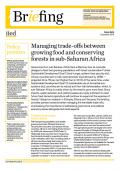
Governments in sub-Saharan Africa face a dilemma: how to reconcile pledges to feed fast-growing populations with forest conservation? Under Sustainable Development Goal 2 (end hunger, achieve food security etc), African countries aim to fully meet domestic food demand by 2030 — projected to be 70 percent higher than in 2010...

Gedaref State was previously known as the food basket of Sudan. Over several decades unsustainable agricultural practices that combined near-monocropping with low nutrient replenishment have led to significant degradation of soils, which are no longer able to sustain farmer livelihoods. This study found that adopting an integrated sustainable land use...
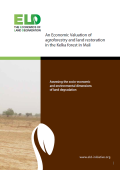
The Kelka forest in the Mopti region of Mali is important for the provision of ecosystem services like carbon sequestration and maintenance of the hydrological cycle. The Kelka forest area occupies more than 300, 000 hectares with 15 villages within and around its boundaries. The forest resources and soil fertility of the forest are in continuous decline...
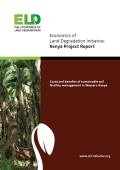
Kenya’s soils are being degraded through suboptimal land management practices, causing declining yields and deterioration of land quality. Sustainable Land Management (SLM) practices can improve soil quality and enhance crop yields. Increasing evidence from the literature highlights the benefits from SLM, but for land users to adopt these practices requires...
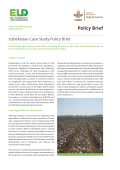
Independence from the former Soviet Union in 1991 presented the republics of Central Asia, Kazakhstan, Kyrgyzstan, Tajikistan, Turkmenistan, and Uzbekistan, with severe challenges for land management with ensuing economic, social, and environmental crises. Driven by the historic development of irrigation projects, often unsupportable increases in livestock numbers on rangelands, and...
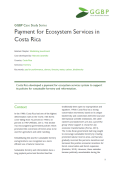
Costa Rica developed a payment for ecosystem services system to support its policies for sustainable forestry and reforestation.
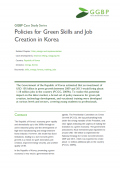
The Government of the Republic of Korea estimated that an investment of USD 105 billion in green growth between 2009 and 2013 would bring about 1.18 million jobs in the country (PCGG, 2009b). To realise this potential impact on the labour market, a broad set of policy measures for green...
Oregon covers a vast territory that is well endowed with natural resources, supporting early specialisation in the energy sector. This case study has a specific focus on Wallowa County, which is a predominantly rural region at the eastern edge of the state. Renewable energy policy in Wallowa County has aimed...
The Western Province in Sri Lanka is the most urbanised province in the country. Rapid urban growth has posed a number of problems. Ever-increasing vehicle traffic and commercial industries have contributed to increased environmental and air pollution. Food and construction are two major sources of greenhouse gas (GHG) emissions, including...
In the present report, good practices and lessons learned on inclusive green growth in selected sectors of the Ethiopian economy are documented. These served as input to the Fifth Issue of the Sustainable Development Report on Africa (SDRA-V), which was prepared under the theme “Achieving sustainable development in Africa through...
